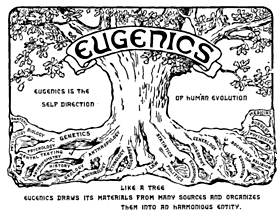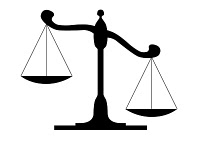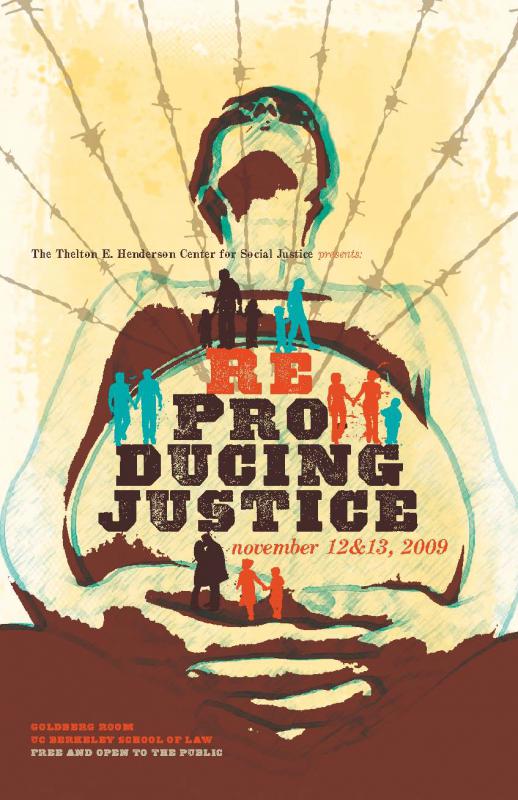Serendip is an independent site partnering with faculty at multiple colleges and universities around the world. Happy exploring!
Notes Towards Week 9 (Nov. 1): Reproducing Justice
Setting the scene: go beyond the cover

I. Coursekeeping
sign in/snack report
(thanks to phenom1 and alice.in.wonderland today;
shlomo and chelseam are on for next week)
now available from top of homepage: files of your
* usernames (in password protected file.... to be tested on?)
* second set of "web events" (but only 16 of these??)
talk about the experience of writing/posting them???
Next week! (deep breath!)
* Judith Butler's first Flexner lecture @ 7:30 p.m. on Monday:
Gender and its Allies: Performativity in Precarity
* the Moodle video for those who can't attend will be loaded by 8AM the following morning
(have you gotten info about this?)
* we won't have time to process Butler's talk next week;
please PLEASE post your responses, so we can draw on them the week after
* Karen Barad's visit to our class next Tuesday
--to deliver a public talk, 7-8:30, then stay to talk w/ us:
** please talk this up among your friends in Queer History, Lesbian Immortal, etc. etc.
** also please read "Quantum Entanglements and Hauntological Relations of Inheritance: Dis/continuities,
SpaceTime Enfoldings, and Justice-to-Come." Derrida Today 3, 2 (2010): 240-268.
phenoms said (in mid-sem evals) that it would be nice to have
"focus" questions given with each week's reading -->
make your own! come w/ questions for Barad--
what do you get? where do you get hung up? what are the implications
of "quantum entanglements" for our work as gender activists? how
to facilitate conversation among scientists and gender theorist/activists?
* also some of us should go @ 1 p.m. this Thursday, Nov 3,
to hear Jonathan Moreno from the Penn Bioethics Center
speak in Zubrow Commons on "The Embattled Politics of Heredity,"
from his new book The Body Politic: The Battle over Science in America
** and! read! Stephen Asma's good essay, "Gauging Gender,"
in The Chronicle Review (October 31, 2011): which reports that
* Biology has become dialectical: While humanists weren't looking,
biology (genetics, embryology, evolution, neuroscience, etc.) left behind
many of its deterministic pretensions and embraced the indeterministic
developmental logic of epigenetics—the complex interface of nurture
and nature. Biology now recognizes the immense domain of external
triggers and influences (from intrauterine environment to social structures)
that shape phenotypic expression of genetic possibilities.
* humanities scholars "slowly getting over biophobia"
* and recommends that we all read Evelyn Fox Keller's 2010 book,
The Mirage of a Space Between Nature and Nurture, which emphasizes
the plastic relationship between genes and environment, and tries to
counteract our tendency to privilege one cause over another by emphasizing
"developmental pathways" .... Which traits are malleable, and to what degree?
The answers will come from a prudent marriage of biocultural analysis,
because developmental pathways don't recognize academic divisions.
*** also Bruce Wightman, "A Better Rational for Science Literacy" (same issue):
all students ... should become scientifically literate. And if they become
better, more employable citizens in a more competitively viable America,
all the better. But first and foremost, they should become scientifically
literate because, to borrow Darwin's phrase, "there is grandeur in
this view of life" .... the sciences force us to confront the smallness
and irrelevance of human beings; they serve as an antidote to
self-obsession. Physics teaches us that time and matter are not absolutes;
biology, that astonishing complexity can arise from a long, natural, stepwise
process. The scope and existential implications of these ideas are immense.
great set-up for a scientist!...who's just returned from
"The Spirit of 1848" caucus @ the American Public Health Association meeting
repeating two pedagogical exercises
that didn't quite work the first time around...
II. Kaye: Barometer (adapted from Taking a Stand: Tools for Action)
1. Sex selection increased my self-determination over the kind of family that I choose to have.
2. Using sex-selection to choose for girls is okay.
3. I have different beliefs about sex-selection before pregnancy vs. sex selection through abortion.
4. Because son preference through sex selection is not widely practiced in the U.S.,
reproductive rights advocates should avoid taking a position on this issue.
Take your seats and write for five minutes,
trying to articulate your stand on sex selection.
Is anyone willing to share?
Would your position hold when the question is about fetal reduction for twins?
Is your position responsive to different historical trajectories, cultural contexts?
Is it responsive to different cultural contexts and community values?
III. snacks
IV. Anne: let's try that "silent board" exercise
again, w/ more space and time and stages....
* take 5 minutes to locate a short passage (10 words tops!)
from the assigned texts that struck you: some words that
said a truth, asked a question, complicated your thinking
* write it up BIG on the poster board
* theatrical performance of all quotes
* take 15 minutes to work w/ these-->
walk around, read, write comments:
no quotes now/only your voices;
respond to one another as well as the quotations
* once you've written on three sheets,
walk around and read what we have written
* locate yourself around a particular concern you want to work on further:
talk together with the others in your location
(do you know each others' names?)
, and then record on the sheets
some short term, achieveable objectives in this area:
try to list 3 different action options
* read these aloud to the large group:
what intersections do we see?
where might alliances be built?
where do they seem problematic?
whose voices are missing?
what gets in the way of alliance building?
how could the issues be re-framed towards the
larger goal of reproductive justice in all communities?
* leamirella's (late!) mid-sem eval:
We keep talking about taking an international perspective and yes,
while we may look at other countries, I still feel as though this is a
little bit superficial....there is an 'over-Americanisation' of the texts
and theories that we are reading. It would be interesting to read
gender theory from say, someone in Africa....When we make
assumptions about genders in general, we tend to forget that
not all societies comply with what our notions of what 'feminine'
or 'masculine' are....I think it is important to look more at gender
constructs in different societies rather than to apply our "own"
(or the American points of reference) to other societies.



